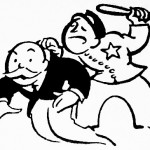If a limited company is wound up, the directors could be liable for its debts if they have allowed the business to trade while it was insolvent.
Winding up is the process, normally started by one of the company’s directors or if there is a forced closure of a company. If a company is put through liquidation, it is unusual for the creditors to receive payment for their debt. For this reason, a creditor’s main objective is to stop the company from trading in the future and to force an investigation into the conduct of the directors.
Company directors investigated in Winding Up
The liquidator must carry out an investigation into the conduct of the company directors if the business is wound up. This investigation is undertaken on any current director or anyone who has been a director of the company in the last three years. The liquidator can also investigate any individual who has acted in the capacity of a director although not registered as such at Companies House.
What the liquidator is looking for is whether there has been proper management of the company, it is important that they check if the directors allowed the business to continue to trade while knowing it was insolvent. This is a serious breach of the duties of a director and is called ‘wrongful trading’.
Actions against directors of insolvent companies
Once the liquidator has completed their investigation, they will submit their report on the directors’ conduct to the Insolvency Service. This is known as a directors’ disqualification report or D1. The liquidator will recommend that the insolvency service take action against the director if they believe that they have been involved in wrongful trading.
The insolvency service will consider two main actions:
1. Where a director has been found to have allowed a company to trade while insolvent they could face Director Disqualification. This will mean they are banned from being a director for a year (sometimes longer) and will have to stand down from any other active directorships. This may have a significant impact on their personal finance.
2. A director accused of wrongful trading can be held personally liable for debts incurred by the company after the director knew that the business was insolvent. This would allow creditors of the company to pursue the directors personal assets and money for outstanding debts.
Winding up is an extremely serious process for company directors because of the possibility that a director may be disqualified or held personally liable for a company’s debts. Given the serious implications for directors, if your company has financial problems then take professional advice as soon as possible.
The directors will be far better protected, if the business should be closed, when they initiate the process themselves using voluntary liquidation. There are alternative solutions that may save the company and avoid any need for investigation, these include Company Voluntary Arrangement.
 For more details about liquidations and other options that may be available to you please contact us for a free, no obligation introductory consultation. 0845 409 4471
For more details about liquidations and other options that may be available to you please contact us for a free, no obligation introductory consultation. 0845 409 4471
